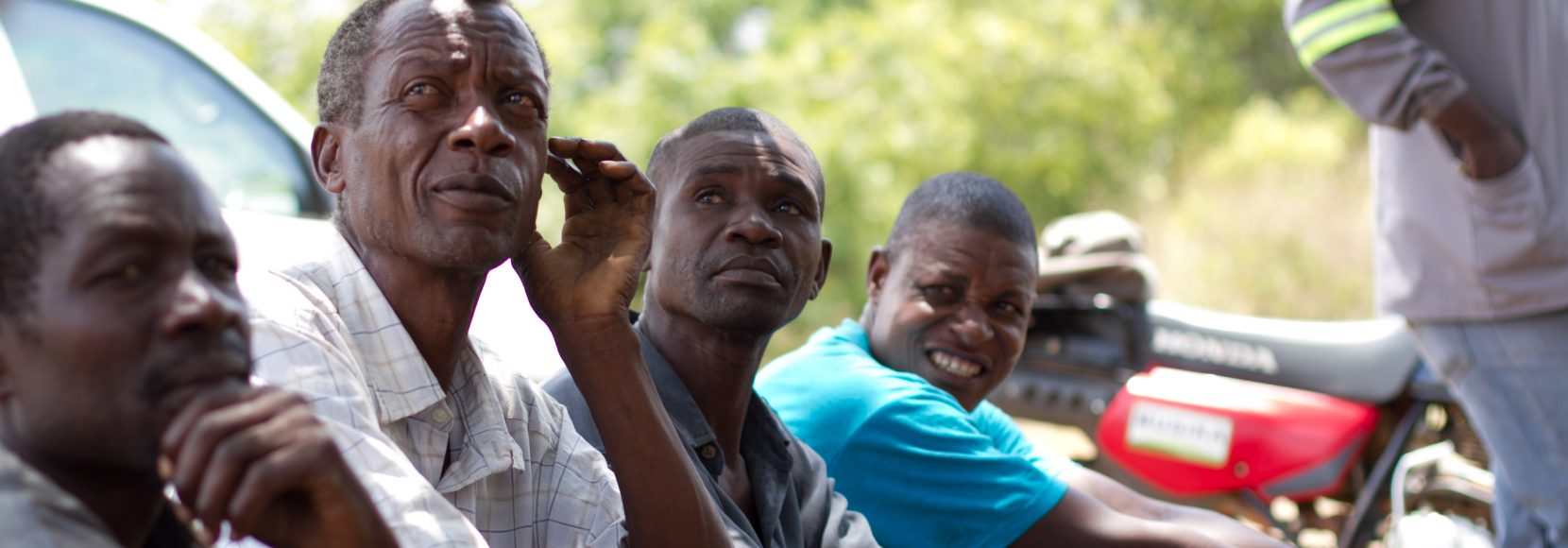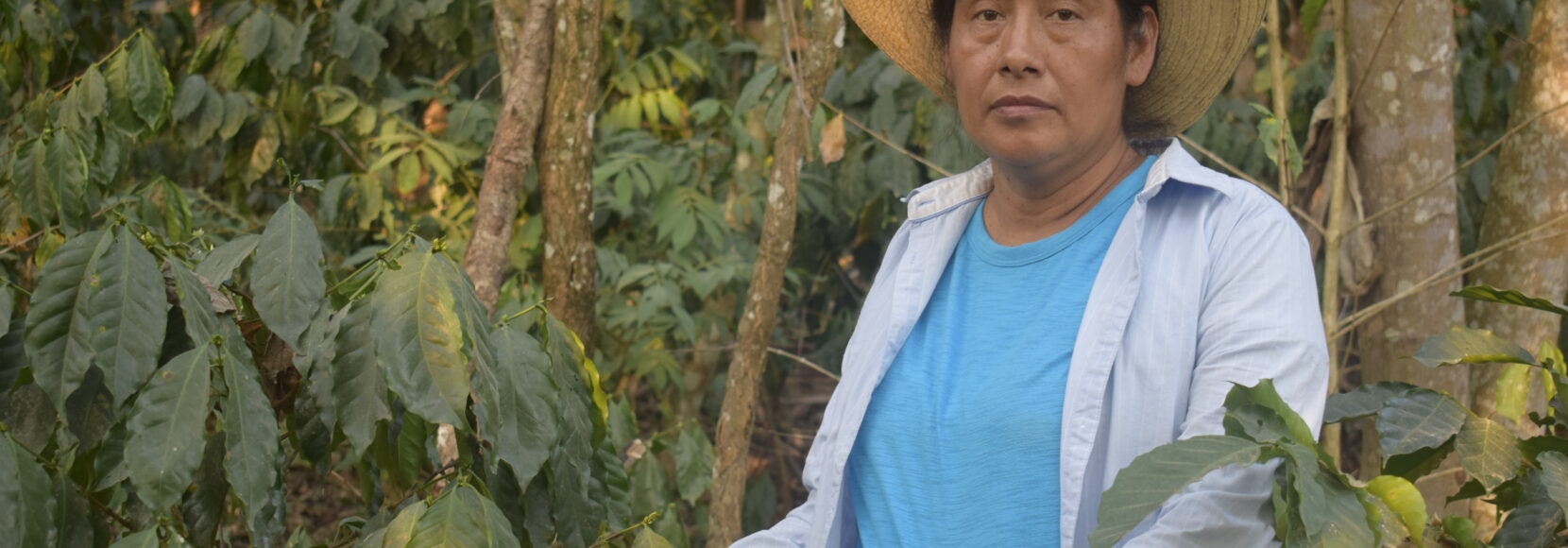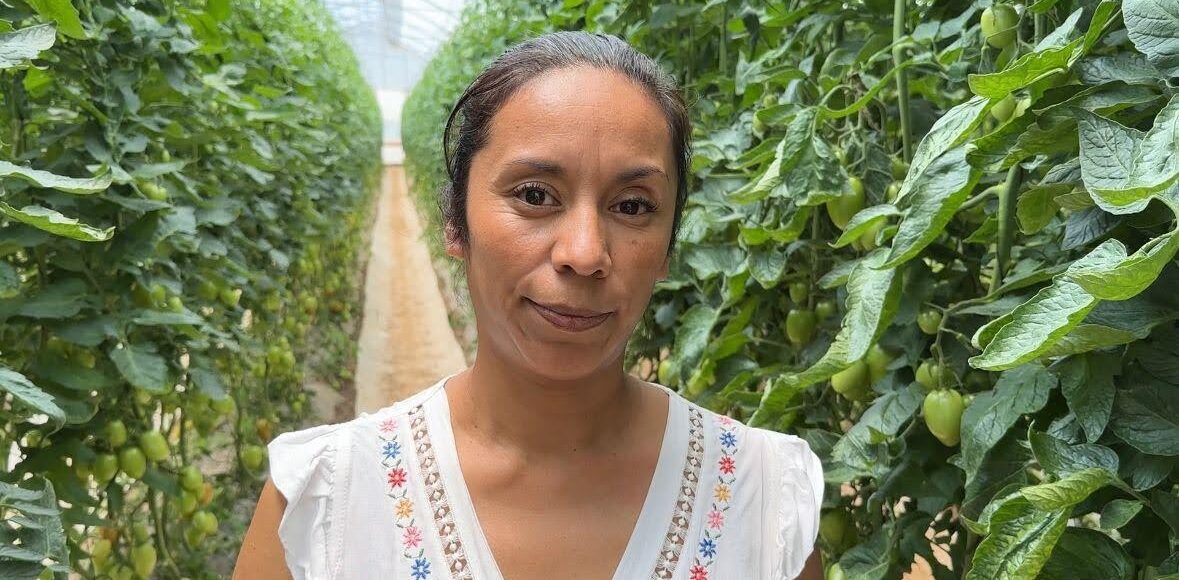
TechnoServe Partnership to Support Nigerian Farmers Wins Prominent Sustainability Award
The initiative with Nestlé Nigeria and IDH helped farmers connect to better supply chains and improve their incomes, contributing to better food security.
To fight the worsening food security situation in Nigeria in 2020, TechnoServe partnered with Nestlé Nigeria and IDH the Sustainable Trade Initiative to help smallholder farmers improve their crops and sell to local value chains.
Last month, the partnership won a prestigious award for its work to improve food systems and livelihoods. At the Sustainability Enterprise and Responsibility (SERAS) CSR Awards Africa 2021, Nestlé Nigeria received the “Best Company in Food Security and the Partnership Award of the Year.”

“Building more inclusive supply chains is a win-win for all stakeholders — farmers, public sector, and the private sector,” said Ayokanmi Ayuba, TechnoServe’s interim country director and director of programs in Nigeria. “We are excited to work with Nestlé and IDH on this initiative to create lasting impact for smallholders, small businesses, and the sector as a whole.”
Ending mid-2021, the program helped almost 6,000 smallholder farmers — of whom roughly 2,000 were women — earn better livelihoods by supplying high-quality maize, soybeans, millet, and sorghum to Nestlé and other reliable buyers. Incomes rose by up to 8%.
Improving Sustainability and Traceability for Smallholder Farmers
The program helped grain aggregator businesses to improve their ability to buy from farmers by helping them improve their grain handling, storage, and testing. And to increase the amount of high-quality grain that reaches these buyers – and consumers – the program trained logistics partners on proper grain handling during transit.
In its effort to improve these food supply chains, the program also:
- Increased traceability by improving recordkeeping and using testing kits to track the quality of grains provided by individual farmers
- Used this grain quality data to tailor training to the specific needs of farmers facing different challenges across the country
- Helped farmers adapt to climate change by providing them with accurate weather forecasts
- Piloted new, low-cost technological innovations like solar dryers
“We are honored to receive these two awards for our efforts in driving food security and also for improving food quality through partnerships,” said Corporate Communications and Public Affairs Manager for Nestlé Nigeria, Victoria Uwadoka. “We would like to express our gratitude to our partners who work closely with us to achieve our goals for improving grain quality while enhancing the livelihoods of the farmers within our ecosystem.”
Sustainability at the Center of Regenerative Agriculture
This work is also one example of TechnoServe’s push for regenerative business: a commercial activity that rejuvenates, rather than degrades, nature so that people and markets can prosper in the long term.
Around the world, countries like Nigeria are dealing with large-scale issues like food insecurity and climate change, which require long-term and multi-faceted solutions.
“Nearly every developed nation began their economic growth by first investing in agriculture, and I believe that agriculture is among the most immediate and highest-impact channels through which to address both poverty and climate change at scale,” says TechnoServe’s Director of Agricultural Markets Matt Foerster.
Building more inclusive supply chains is a win-win for all stakeholders — farmers, public sector, and the private sector.
Ayokanmi Ayuba, TechnoServe
When these locally tailored solutions are applied, regenerative agriculture can be a part of a long-term solution. With climate change, for example, the adoption of regenerative farming practices like reduced tillage, crop rotation, the use of cover crops, and reduced application of synthetic fertilizers can be a solution to both reducing emissions and sequestering carbon already in the atmosphere.
“This might involve introducing diverse cropping rotations and adopting regenerative farming practices that increase soil health, which at the end of the day is a farmer’s most valuable asset,” adds Matt Foerster.
These solutions don’t just target the climate change problem, but go further to leave the environment better off than it was before.





